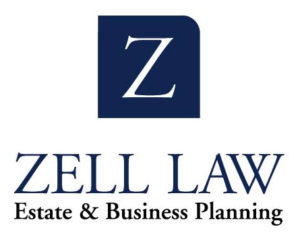By Wayne M. Zell, Esq., of Zell Law, PLLC, an estate and business planning law firm located in Northern Virginia that focuses on helping clients realize their dreams of wealth and freedom.
We recently published an update on the tax-related provisions in the Coronavirus Aid, Relief and Economic Security (CARES) Act that impact individuals.
This article summarizes the most important small business-related provisions of the Act. For more details, please visit our website.
Employee Retention Credit for Employers
Eligible employers can qualify for a refundable credit against, generally, the employer’s 6.2% portion of the Social Security (OASDI) payroll tax (or against the Railroad Retirement tax) for 50% of certain wages (below) paid to employees during the COVID-19 crisis.
For employers with more than 100 employees in 2019, the eligible wages are wages of employees who aren’t providing services because of the business suspension or reduction in gross receipts described above. For employers with 100 or fewer full-time employees in 2019, all employee wages are eligible, even if employees haven’t been prevented from providing services.
The credit is provided for wages and compensation, including health benefits, and is provided for the first $10,000 in eligible wages and compensation paid by the employer to an employee. Thus, the credit is a maximum $5,000 per employee. Various exclusions from “wages” apply, so please consult our blog for more details.
Delayed Payment of Employer Payroll Taxes
Taxpayers (including self-employed) will be able to defer paying the employer portion of certain payroll taxes through the end of 2020, with all 2020 deferred amounts due in two equal installments, one at the end of 2021, the other at the end of 2022.
Taxes that can be deferred include the 6.2% employer portion of the Social Security (OASDI) payroll tax and the employer and employee representative portion of Railroad Retirement taxes (that are attributable to the employer 6.2% Social Security (OASDI) rate). The relief isn’t available if the taxpayer has had debt forgiveness under the CARES Act for certain loans under the Small Business Act as modified by the CARES Act (see below). For the self-employed, the deferral applies to 50% of the Self-Employment Contributions Act tax liability (including any related estimated tax liability).
Net Operating Loss Liberalizations
The 2017 Tax Cuts and Jobs Act (TCJA) limited NOLs arising after 2017 to 80% of taxable income and eliminated the ability to carry NOLs back to prior tax years. For NOLs arising in tax years beginning before 2021, the CARES Act allows taxpayers to carryback 100% of NOLs to the prior five tax years, effectively delaying for carrybacks the 80% taxable income limitation and carryback prohibition until 2021. The Act also temporarily liberalizes the treatment of NOL carryforwards.
Deferral of Non Corporate Taxpayer Loss Limits
The CARES Act retroactively turns off the excess active business loss limitation rule of the TCJA in Code Sec. 461(l) by deferring its effective date to tax years beginning after December 31, 2020 (rather than December 31, 2017). Under the rule, active net business losses in excess of $250,000 ($500,000 for joint filers) are disallowed by the 2017 Tax Law and were treated as NOL carry forwards in the following tax year.
The CARES Act clarifies, in a technical amendment that is retroactive, that an excess loss is treated as part of any net operating loss for the year, but isn’t automatically carried forward to the next year. Another technical amendment clarifies that excess business losses do not include any deduction under Code Sec. 172 (NOL deduction) or Code Sec. 199A (qualified business income deduction).
Acceleration of Corporate AMT Liability Credit
The TCJA repealed the corporate alternative minimum tax (AMT) and allowed corporations to claim outstanding AMT credits subject to certain limits for tax years before 2021, at which time any remaining AMT credit could be claimed as fully-refundable. The CARES Act allows corporations to claim 100% of AMT credits in 2019 as fully-refundable and further provides an election to accelerate the refund to 2018.
Relaxation of Business Interest Deduction Limit
The TCJA generally limited the amount of business interest allowed as a deduction to 30% of adjusted taxable income (ATI). The CARES Act generally allows businesses, unless they elect otherwise, to increase the interest limitation to 50% of ATI for 2019 and 2020, and to elect to use 2019 ATI in calculating their 2020 limitation. For partnerships, the 30% of ATI limit remains in place for 2019 but is 50% for 2020.
However, unless a partner elects otherwise, 50% of any business interest allocated to a partner in 2019 is deductible in 2020 and not subject to the 50% (formerly 30%) ATI limitation. The remaining 50% of excess business interest from 2019 allocated to the partner is subject to the ATI limitations. Partnerships, like other businesses, may elect to use 2019 partnership ATI in calculating their 2020 limitation.
Technical Correction to Restore Faster Write-offs for Interior Building Improvements
The CARES Act makes a technical correction to the 2017 Tax Law that retroactively treats.
- A wide variety of interior, non-load-bearing building improvements (qualified improvement property (QIP)) as eligible for bonus deprecation (and hence a 100% write-off) or for treatment as 15-year MACRS property or
- If required to be treated as alternative depreciation system property, as eligible for a write-off over 20 years.
The correction of the error in the 2017 Tax Law restores the eligibility of QIP for bonus depreciation, and in giving QIP 15-year MACRS status, restores 15-year MACRS write-offs for many leasehold, restaurant and retail improvements.
Accelerated Payment of Credits for Required Paid Sick Leave and Family Leave
The CARES Act authorizes IRS broadly to allow employers an accelerated benefit of the paid sick leave and paid family leave credits allowed by the Families First Coronavirus Response Act by, for example, not requiring deposits of payroll taxes in the amount of credits earned.
Certain SBA Loan Debt Forgiveness Isn’t Taxable
Amounts of Small Business Administration Section 7(a)(36) guaranteed loans that are forgiven under the CARES Act aren’t taxable as discharge of indebtedness income if the forgiven amounts are used for one of several permitted purposes. The loans have to be made during the period beginning on February 15, 2020 and ending on June 30, 2020.
IRS information site. Ongoing information on the IRS and tax legislation response to COVID- 19 can be found at www.irs.gov/coronavirus.
I will be pleased to hear from you at any time with questions about the above information or any other matters, related to COVID-19 or not. I wish all of you the very best in a difficult time.







